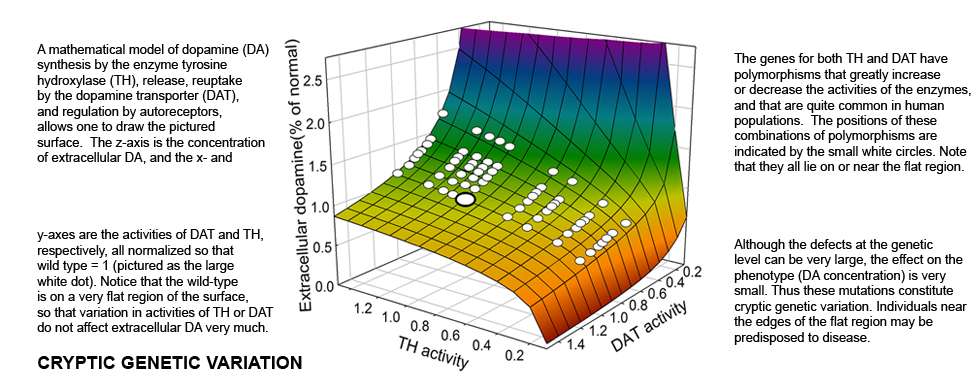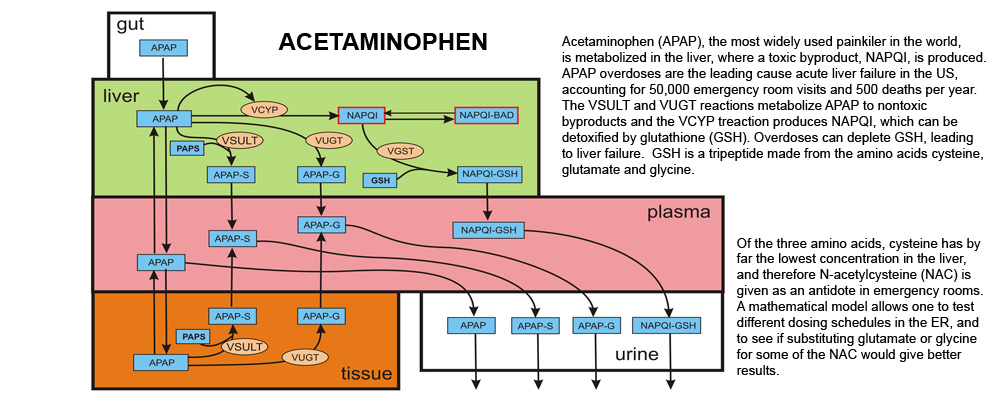THE PROBLEM
Studies in the causes of human diseases attempt to discover correlations between genetic polymorphisms, environmental variables, biomarkers of disease, and disease outcomes. Such studies over the past 70 years have revealed correlations between diet and various diseases like cancers, heart disease, diabetes, and neuropsychiatric disorders. More recently the focus has been on the correlations between genetic mutations and these diseases and a host of other ailments.
Unfortunately, in many cases the correlations are weak and differ between populations. Typically, the causal chains of events between the genetic polymorphisms, diet, other contributing factors, and the disease are poorly understood. It is therefore difficult to use these correlations to make reliable health policy recommendations for individuals and populations.
To understand the origins of disease it essential to understand the causal mechanisms by which genetic and environmental variables affect the molecular biology of cells. This is a daunting task. Thousand of genes are active in each cell and the interactions among them determine many aspects of cell function. The gene products provide the basis for the myriad reactions of cell biochemistry, metabolism and cell signaling, that lead to growth, development, and senescence. Complicating this picture is the fact that many metabolites can directly influence gene activity. These many interactions produce a dynamical system that changes over time, is never at equilibrium, and differs from cell to cell. This dynamical system is the central object of study.



